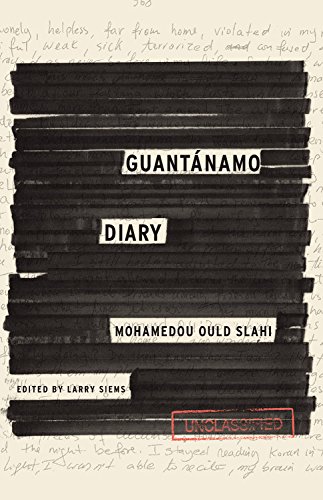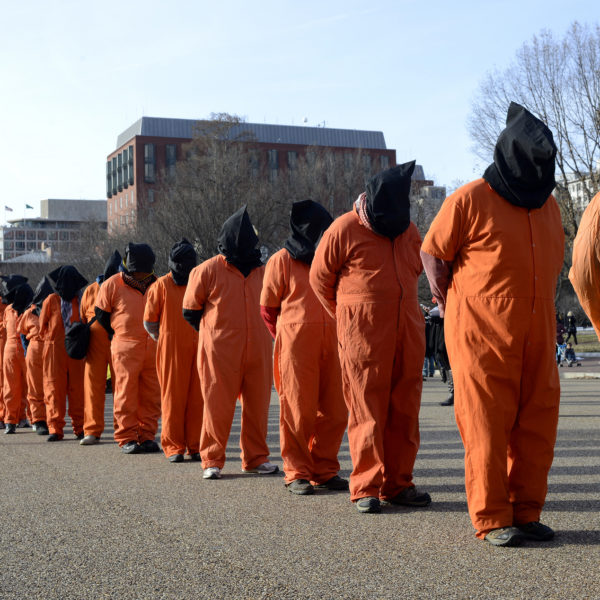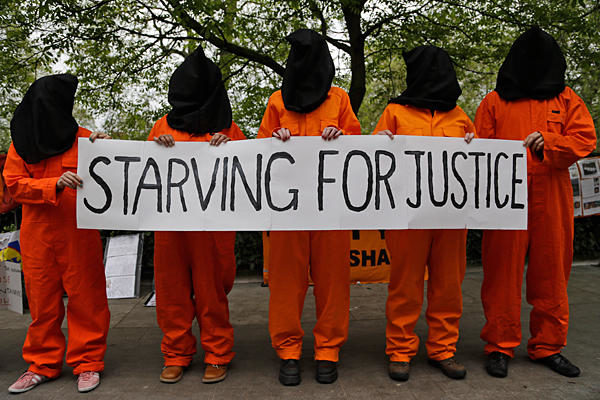
The discourse of terrorism is itself an ideology linked to conceptions of truth and identity, life and death, law and justice. But there is also a terror that exists in silence, a terror that bears no name because the life it destroys is not even recognized as having lived.

. . . We live in an age of terror, but not because we have been terrorized by the Other. Rather, the terrorism we recognize is the consequence of an a priori distinction between lives that matter and lives that don’t. Slahi, confined at Guantanamo since January 2000 without charge, represents the figure of terror.

He faces no criminal charges. Indeed, a U.S. judge ordered him released five years ago. Nevertheless, Mohamedou Ould Slahi remains in Guantánamo Bay, after more than thirteen years in captivity. He was snatched out of his home country of Mauritania shortly after 9/11/2001, and then renditioned to Jordan, Afghanistan, and finally Cuba. In U.S. custody he has endured beatings, threats, sexual assaults, sensory deprivation, lengthy exposure to cold temperatures, food deprivation, deprivation of medical care, stress positions, and forced nudity.

Currently there are about 100 prisoners in Guantanamo Bay Detention on hunger strike (89 of whom have been determined to be innocent of accusations but not released and some of whom have been on hunger strike for more than 106 days) and an estimated “2,493 inmates in 15 state prisons are participating in a mass hunger strike” (Democracy Now 7/17/13). At Gitmo, periodic hunger strikes have been going on for a number of years, prisoners are protesting unlawful imprisonment, cruel treatment and lack of transparency; many prisoners are being force fed.